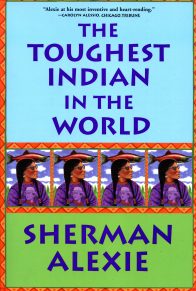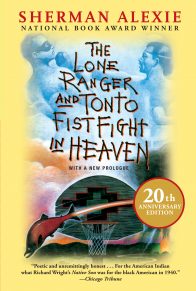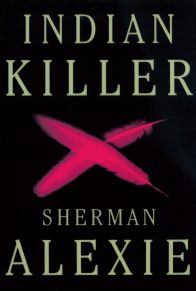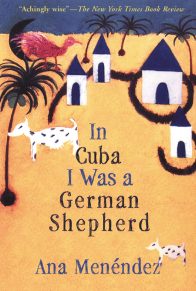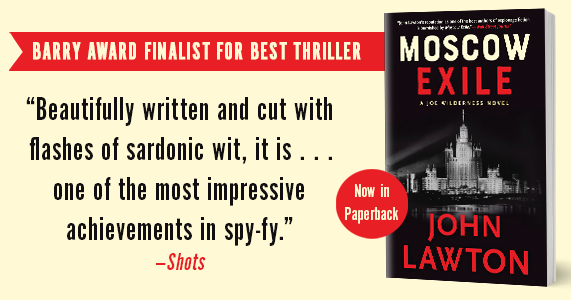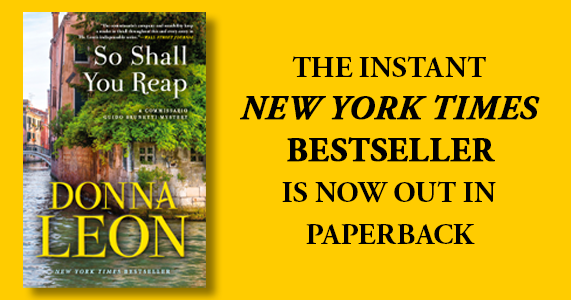The river begins in ice.
Grey-green and frozen with silt, the Shield shifts and breaks out of the mountains in cataracts and cascades, fierce and alive. It plunges into chasms and dives under rock shelves, but as the river leaves the foothills and snakes across the belly of the prairies, the water warms and deepens, and splits the land in two.
Truth and Bright Water sit on opposite sides of the river, the railroad town on the American side, the reserve in Canada. Above the two towns, the Shield is fat and lazy, doubling back on itself in long silver loops as it wanders through the coulees. But as the river comes around the Horns, it narrows and drops into the deep chutes beneath the bridge. It gathers speed here, swings in below the old church, and runs dark and swift for half a mile until the land tilts and the water slows and drains away towards Prairie View and the morning sun.
At a distance, the bridge between Truth and Bright Water looks whole and complete, a pale thin line, delicate and precise, bending over the Shield and slipping back into the land like a knife. But if you walk down into the coulees and stand in the shadows of the deserted columns and the concrete arches, you can look up through the open planking and the rusting webs of iron mesh, and see the sky.
The church sits on a rise above Truth, overlooking the river and the bridge. Built at the turn of the century, it is a plain, squarish building with a raised porch, high windows, and a dark steeple that leans slightly to one side. Instead of being long and sharp with a hard pitch like the steeple on the big Presbyterian church in Prairie View, this steeple is squat and flat with a set and angle that make it look as if a thick spike has been driven through the church itself and hammered into the prairies.
The church was built by the Methodists as a mission to the Indians. The Baptists owned it for a while in the forties. They sold it to the Nazarenes, who sold it to the First Assembly of God, who sold it to the Sacred Word Gospel, who left the church standing empty and moved down the river to Prairie View just after construction on the bridge stopped.
By then, the roof was missing most of its shingles, and the clapboard siding was cupped and pitted. The north side had been completely stripped by the cold and the wind, leaving an open wound of wood that had scabbed over grey and brittle. To the west and the south, the paint that was left had blistered and split and curled up in twists like pigs’ tails.
But on days when the sky surges out of the mountains, gun-metal and wild, and the wind turns the grass into a tide, if you stand on the river bottom looking up at the bluff, you might imagine that what you see is not a church gone to hell but a ship leaned at the keel, sparkling in the light, pitching over the horizon in search of a new world.
The Horns, like Truth and the old church, are on the American side of the river, twin stone pillars that rise up from the water and meet to form a shaggy rock crescent that hangs over the river like the hooked head of a buffalo. It is an old place, silent and waiting, and from the high curved shelf of the outcrop, you can turn into the wind and feel the earth breathing or watch the Shield glow black and bright, as the evening shadows run out across the land like ribbons in a breeze.
In daylight, the river valley is bright and dry, wolf willow and cottonwood. Seagulls crowd the tops of the coulees, thrown up into the air like kites, while between the cutbanks, squadrons of pelicans skim the face of the river, single file, searching for their reflections in the shoals and the deeper pools.
At night, the light goes to ground and gives the world up to the insects and the stars. Bats flood the river bottom and tumble in swirling eddies over the water. Coyotes come out of hiding and range the coulees chasing rabbits and the moon, and everywhere the air is warm and sweet.
But beneath the bridge, trapped between the pale supports that rise out of the earth like dead trees and the tangle of rebar and wire that hangs from the girders like a web, the air is sharp, and the only thing that moves in the shadows is the wind.
Chapter One
Soldier and I relax on the side of the coulee and watch Lum lengthen his stride as he comes to high ground. His skin glistens with sweat, but he moves as if there is no more to the run than the effort of breathing. His arms stay close to his side. His body leans in slightly at the hips.
“Come on!”
Only his legs are in motion. They stretch out across the ground in long, gliding strokes and carry him over the last rise. Soldier barks and charges over the side of the coulee as Lum slows to a lope and circles back. I look at the stopwatch.
“How was it?” There are white lines down the sides of Lum’s face and across his back where the heat has dried the salt against his skin.
“Twenty-six minutes, fourteen seconds.”
“All right.” Lum stops moving and braces himself on his knees. His eye isn’t black anymore. It’s purple now, and yellow, and doesn’t look as if it hurts too much. “I can go faster,” he says. “But you don’t want to go all out when you’re in training.”
“That’s right.”
“Otherwise, when you get to the big race, you’re wasted.” Lum
reaches into his pack and takes out his cigarettes and his gun.
“Thought you were going to give up smoking.”
“Toughens your lungs so the dust doesn’t bother you.” Lum cracks the cylinder and slips a bullet into each chamber. “You think that Cree guy is going to show his face?”
“Can I shoot it?”
“He was lucky.” Lum closes the cylinder. “Last year I was sick.”
“I’ll be careful.”
Lum tosses me the gun and lights a cigarette. “All he’s going to see of me this year is my ass.”
Lum began carrying the gun a couple of summers ago. I figured he had borrowed it from his father, but Lum said he found it out at the landfill. The gun was dull silver with a black handle and a red dot on the front sight. It looked too good to throw away, but Lum said I’d be amazed what shows up at the dump.
The gun was a lot of fun. We’d buy a box of shells at Tucker’s Sporting Goods across from Safeway, go down to the river, throw cans in the water, and shoot at them as they floated along. When Lum first showed up with the gun, I was worried that he might try something dumb like Russian roulette. We had seen a really long movie about a bunch of men from a small town in the States who go to the Vietnam War and wind up sitting in a bar with a gun, drinking and sweating and looking tough and bored, taking bets on who is going to live and who is going to die.
One of the men would put a single bullet in a chamber and spin the cylinder, and then another guy would put the gun to his head and pull the trigger. When someone blew his brains out, the film slowed down so you could see the dumb expression on his face, as if the whole thing were a big surprise.
Lum pushes a stream of smoke out of his nostrils and lets it curl around his head. “See if you can hit the bridge from here.”
The gun is heavy and cold. I hold it the way the cops hold their guns on television, one hand on the butt, the other cradling the first hand to keep everything steady. I lower the gun slowly until the top of the red dot is in the middle of the rear sights, take a deep breath, and let half of it out.
“The Indian Days long-distance champion.” Lum holds his arms over his head. “You know what I’m going to do when I hit the finish line?”
I squeeze the trigger slowly. The sound of the first round is no more than a sharp snap like something cold breaking. The sound of the second round is caught in the wind and blown away.
“I’m going to keep on going. When I hit the tape and everyone is cheering, I’m going to keep on running. And I’m not going to stop until I feel like stopping.”
We didn’t play Russian roulette. We had our own games and some of them were pretty stupid. Once, Lum tried putting the barrel of the gun down a ground squirrel hole and pulling the trigger. Neither of us knew where the bullet went, but the explosion scared the hell out of me and blew dirt into our eyes.
A better game was one where you shot at your own feet and tried to come as close as you could without hitting anything. Sometimes we took our shoes and socks off so we could see exactly where the bullet went, and so we could feel the ground blow up around our toes.
But the best game of all was climbing up into the girders of the bridge and skipping bullets off the concrete and steel. We worked on the angles, and after a little practice, we got each shot to bounce at least once and sometimes twice. Three times was hard, and four was impossible, because by then the only thing left of the bullet was the sound of the ricochet.
With each shot I take, I jerk the gun up, pretending it’s a heavier weapon than it is and has one hell of a kick. Sometimes I make an explosion sound under my breath. Sometimes I blow on the barrel.
“If I wanted, I could get one of those running scholarships at a big university.” Lum takes the gun and fires a quick round into the dirt next to my foot. “Hell, I’m as good as Tom Longboat already.”
“Try hitting the bridge.”
Lum has a long drag on the cigarette, cocks the hammer, and smiles. “Don’t move.”
The evening sun angles out of the clouds for a moment, lighting the sky and setting the prairie grass ablaze. Then it slips behind the mountains and the air turns deep blue and purple, as if the land is slowly being pulled down into a lake.
“You ask your father about jobs?”
“Why don’t you ask him,” says Lum.
Lum’s father and my father are brothers, but you would never know it to look at them. My father is tall with small hands and long hair. Prairie clay and willow. Franklin is shorter, all chest and shoulders, with a crewcut. River rock and fast water.
“I’m not afraid to ask him,” I say.
“Don’t forget to duck,” says Lum.
My father drinks from time to time, and every so often, when he’s been drinking too long, he’ll come by the shop to tell my mother that he’s sorry he left us. Sometimes he gets sad and wants my mother to take him back. Sometimes he gets angry and swings at things. But he doesn’t really mean it, and he always gives us plenty of time to get out of the way.
Franklin doesn’t drink, and he doesn’t joke around like my father, so it’s hard to tell if he’s angry or in a good mood. Lum tells me that you have to watch his eyes, that you’re okay until they stop moving.
“Saw the Cousins.” Lum grabs the fur at the back of Soldier’s neck and pulls it into a wad. “Up by the church.”
“No way!”
“Looks like they decided to come home.”
“Was he up there?”
“Who?”
“Monroe Swimmer. At the church.”
“How should I know,” says Lum. “Why don’t you ask the Cousins.”
Soldier’s ears perk up and a hard quiver runs through his body. I figure all this talk about the Cousins is getting him tense. But then I see it, too.
A car. It comes across the prairies, its headlights swinging from side to side. In the dusk, they look like stars moving across the evening sky.
“Headed for the church,” I say as I watch the car ride the ridge. “Maybe it’s Swimmer.”
“You ever see the big-time artist?” Lum holds the gun out at arm’s length and follows the car. “Anybody you know ever see him?”
The car stays on a straight line for the church, and I’m beginning to think that it just might be Monroe Swimmer when the lights angle off towards the river and the car drops into a long swale and disappears.
“Tourists?”
“There’s no road.” Lum turns his head as if he can hear the car moving in the grass. “Tourists need a road.”
“Not necessarily,” I say. “Remember that German couple?”
Lum stands up. “They’re heading for the Horns.”
Soldier dances around Lum’s legs, his tongue lolling out of his mouth, his jowls hung with chains of slobber. He’s hoping there’s a game to play and wants to let us know that he’s ready.
“Maybe we should leave the mutt here.” Lum digs a dirt clod out of the ground with his toe and picks it up. “Remember what happened last time.”
“That was bad luck.”
“Trying to catch a skunk isn’t bad luck.”
“He wasn’t trying to catch it.”
Lum drops the clod on Soldier’s head. “Next time, you can clean him up all by yourself.”
Lum is right. The car is heading for the Horns. It wades out of the bottom of the coulee slowly, like a cow in thick water, and pulls itself up onto the hard plate of the outcrop.
“If I had a car,” I tell Lum, “I sure as hell wouldn’t bring it out here.”
“Truck.” Lum shades his eyes as if he can see something more than the shape of the land and the motion of the river. “It’s a pickup.”
We stand on the bluff. The truck sits on the Horns, its lights pointing across the Shield into Canada.
“Okay,” I say. “So, what are they doing?”
“Only a couple of things you can do out here.” Lum turns and smiles at me. “You want to sneak down and watch?”
We’re too far away to see much of anything, but the sound of the pickup’s door opening carries across the prairies like a shot, clear and sharp, and a figure steps in front of the truck.
“It’s a woman,” says Lum. “You see the guy?”
“What guy?”
“Come on, cousin,” says Lum. “She didn’t drive all the way out here just to be by herself.”
I’m trying to think of other reasons why anyone would risk their tires and their oil pan over broken ground at night. “Maybe she’s lost,” I say.
“Nobody gets lost out here,” says Lum, and he reaches down and scratches Soldier’s head. “Just bored.”
The woman seems to float in the lights. She turns and weaves her way across the hard ground, her hair streaming, her arms spread wide as if she were a bird trying to catch the wind. Lum moves sideways along the coulee and Soldier follows him.
“She’s dancing.”
“Great,” says Lum. “Maybe she’ll take her clothes off.”
“In your dreams,” I tell Lum, but I keep my eyes on the figure in the distance in case I’m wrong. There’s always the chance that she might be drunk. When my father has had too much to drink, he likes to joke around and do silly things. Just before he gets angry, he can be really funny.
The woman doesn’t dance for long. She slows down by degrees, stops moving altogether, and leans against the truck, her back to the lights. The inside of the truck is dark and lifeless, and the more I watch, the more I’m sure she’s come to the Horns alone.
“Show’s over,” I tell Lum. “Let’s check out the church.”
Lum grabs my elbow. “Not so fast,” he says.
I guess I expect that after the woman catches her breath, she’ll get back in the truck and drive off. Instead, she walks to the side of the truck and takes something out of the back.
“What do you think?” says Lum.
“Looks like a box.”
“It’s a suitcase, cousin,” says Lum. “Pay attention.”
The woman carries the suitcase and follows the headlights out to the edge of the Horns, where the rock cap rises and curls under itself like a lip and plunges into the river below. You can see Bright Water right across the river, the lights of the townsite, the band office, and the silhouette of the water tower. It’s nice, I guess, but I wouldn’t drive all the way out here just for the view.
So, Lum is wrong about the guy, and I’m trying to think up other reasons why a woman with luggage is standing on the Horns in the middle of the night when she squats down and opens the suitcase.
“What’s she doing?”
“You see that?” Lum thumps me on the shoulder. “She threw something into the river.”
“Where?”
“There,” says Lum, “she did it again.”
A lot of junk winds up in the river this way. Some of it gets washed out of the Bright Water landfill and some of it gets blown off the prairies by the wind. But most of the garbage – car tires, glass bottles, oil drums, shopping carts – comes from people who figure that rolling an old washing machine down the side of a coulee or tossing plastic bags and roofing materials off the bank isn’t going to hurt anything.
I’m thinking we should walk over to the Horns and tell the woman to throw her garbage somewhere else when she gets up and moves out onto the rock face. She goes all the way to the edge of the cliff until she can go no farther, and then she spreads her arms. And waits. In the cold lights of the truck, against the night sky, she looks like a diver frozen on a board. Or a stone cross.
“She’s going to jump.”
The woman does look as if she might be thinking about jumping, but I’m betting that people who dump garbage into a river aren’t going to jump in after it.
“No, she’s not.”
No matter what, I wouldn’t like to be standing that close to the edge. A hard gust of wind could come off the river or a piece of rock could shift under your foot. Looking down too long could also make you lose your balance, so I’m relieved when the woman finally drops her arms and steps away.
“See?” I say. “She was just fooling around.”
The woman picks the suitcase up and heads for the truck. I figure she’s going to drive off and that will be that, but when she gets there, she reaches into the cab and turns on the radio instead. And as Lum and Soldier and I watch, she steps back into the lights. It’s all a little weird. The music coming across the coulees on the wind. The truck lights slicing through the darkness. The woman standing in the glow, her long hair crackling as if she were on fire.
I turn to see what Lum wants to do, but he’s looking straight ahead. “You hear that?” he says.
“The music?”
Lum doesn’t take his eyes off the woman on the Horns. “It’s my mother’s favourite song.”
I move back a bit just in case Lum is in one of his moods. The song is okay if you like sad stuff that sounds like rain and cloudy days. “Yeah,” I say, “it’s one of my mum’s favourites, too.”
The woman begins walking back across the rocks, slowly at first, but as she goes, she gathers speed, the music and the lights pushing her forward, sweeping her along like foam on a current. She doesn’t slow down and she doesn’t look back, and before either Lum or I can call out or do anything to save her, she is picked up as if on the crest of a wave and washed over the edge of the cliff.
For that first instant, caught at the limits of the truck’s lights, the woman appears to float on the air, her body stretched out and arched, as if she’s decided to ride the warm currents that rise off the river and sail all the way to Bright Water. But this is nothing more than illusion. Instead, she plummets down the long spine of the Horns and vanishes into the night. There is no sound, no flashing ripples on the water, nothing to mark her fall.
“Holy!” Lum is the first to move. He quickly crushes the cigarette and bends down and ties his shoes. “Time me,” he shouts, and he hands me the stopwatch. Lum drops down the side of the slope and heads for the base of the bridge. I’m right behind him for the first fifty yards, but there’s no way I can keep up the pace. Soldier charges past me and crashes through the chokecherries and the greasewood as he chases after Lum. I’m not slow, but by the time I get to the bridge, Lum is already up one of the concrete abutments.
“Get on the ladder,” Lum yells to me. “Tell me when you see her coming.”
There’s a safety ladder on one of the columns. I climb it until I can see both the bend in the distance and Lum moving out along a beam below me.
“You see her?”
“No!” I try not to look down. The water is nothing but a dark blur. And as it slides off the rock plates and is forced around the thick footings of the bridge, you can hear it hiss.
“Anything?”
“No!”
The moon comes out, and I watch the light dance on the water. Now and then, a shadow is caught in the current, and for a moment, I think I can see a head or an arm. But it is never anything more than a standing wave or the water tumbling over rocks.
It is late when Lum finally stands up and makes his way back, and I come down the ladder.
“She must have gotten by us,” I say.
“No way.”
“So, where is she?”
We stand by the river in silence and listen to the water plunge into the channel.
“How was my time?”
I hand him the stopwatch. He looks at it for a moment and nods.
“Where’s Soldier?” I listen to see if I can hear him.
“Who cares,” says Lum. “Come on.”
The way along the bank is a dark twist of willows, mud, and undercuts, and at points, we are forced to retreat up into the coulee and come around from above. Or we have to drop into the river itself and walk the shallows. It would be easier to climb back up to the bluff and follow the road around and out to the Horns. But if the woman has survived the fall and floated to shore or has gotten hung up in the bushes, we’d never see her from the ridge.
“Maybe Soldier has found her.”
“That mutt couldn’t find his butt with his tongue.”
We walk the river all the way to the flat below the Horns. Every so often, we stop to search the water, looking for clues. We even try shouting just in case she’s injured, so she’ll know that rescue is close at hand.
“Lady!”
“Hey, lady!”
By the time we get to the flat, fog has started to form low on the water. Our runners are filled with mud and sand, and we have to sit on the bank and empty our shoes.
I’m starting to get cold. “Maybe she’s dead.”
“Off the bridge, she’d be dead for sure,” says Lum. “But we’ve gone off the Horns before, and we’re not dead.”
“We don’t go off the top. We go off the lower ledge.”
“I go off the top,” says Lum. “I go off the top all the time.”
I’m sure we’re not going to find anything in the dark and the fog, but I know telling Lum isn’t going to do any good. “So, what do we do now?”
“Look for footprints,” says Lum. “Current could have brought her in here.” Lum reaches into the water and comes up with a rubber glove and a couple of those sticks that doctors shove down your throat to make you gag. “How about this?” He blows up the glove until all the fingers are swollen and white, and taps on it with one of the sticks. It’s a dead, hollow sound.
“Christ,” I say. “Don’t touch it.”
“Landfill drum.” He ties the glove off and sets it afloat on the current. “Come on. Let’s go check out the view.”
The climb from the river bottom up to the Horns is long and slippery. In some places, we can grab clumps of grass and pull ourselves along. In other places, we have to dig out handholds and kick our toes into the side of the hill. Behind us, in the dark, I can hear the small avalanches of dirt and gravel rattling down the slope.
By the time we get to the top, we’re both tired. I lie down on my back in the moonlight. Lum picks up stones and skips them across the grass.
“You notice anything, cousin?”
I don’t move. “Like what?”
“No truck.” Lum skips another stone into the grass. “No music.”
The truck is gone. It had been sitting on the Horns with its lights on when the woman jumped into the river.
“Maybe we should tell the cops.”
“Sure,” says Lum. “They love a good Indian joke.”
“We didn’t do anything.”
“Remember what happened to Eddie Weaselhead?”
“That was a mistake.”
“Doesn’t make Eddie any less dead.”
Lum wanders out towards the high shelf. I lie back in the grass and watch the moon in the sky. The song is playing in my head and I’m trying to get rid of it when I hear Lum yell. I look up just in time to see him pull the gun out of his waistband and fire into the grass. The shot skips through and clatters across the rock outcrop. Somewhere in the darkness, Soldier barks.
I’m on my feet in a flash. “Hey, be careful!”
“Damn dog tried to jump me.” Lum is crouched in the grass, the gun in his hand. “Come on. He’s got something.”
Off to the left, Soldier bursts out of the grass, runs across the rocks, and dives back into cover before Lum can find the trigger or the range.
“He’s just playing.”
We don’t find Soldier right away. He’s buried himself deep in the grass, but we can hear the low rumbling noises he makes in his throat. We can hear him grunting, too, and gagging, as if he’s trying to chew and swallow at the same time.
“Call him,” says Lum. “Tell him I won’t shoot him.”
“Tell him yourself.”
“He won’t believe me.”
When we finally find Soldier, he’s lying on his belly. His ears are back and his mouth is locked around something large. Lum leans forward to get a better look. “That’s disgusting.”
“It’s just a ball,” I say.
Soldier stands up, growls, and drops the ball at his feet. As soon as it hits the ground, he snatches it up quickly, takes several steps back, glances at us, and drops it again.
“Look again, cousin,” says Lum.
Soldier rolls it over in the moonlight, and I can see that it’s not a ball at all.
“Is it human?”
“Not anymore.” Lum coaxes the skull away from Soldier and cleans the slobber off on the grass. Someone has looped a long red ribbon through the eye sockets. “Nice colour,” says Lum, and he wraps the ribbon around his finger.
“Where’d it come from?
Most skulls you see in the movies are white and chalky. This one is soft yellow and shiny and smaller than I would have imagined. Lum lets the skull roll off his fingers. When it hits the end of the ribbon, he jerks his wrist and catches the skull on the bounce. “Maybe it’s not a skull,” he says. “Maybe it’s a yo-yo.”
Soldier stays low in the grass and watches the skull float above him.
“No dirt on it,” says Lum, “so he didn’t dig it up.”
“So?”
Lum holds the skull out and lets Soldier jump for it. “Makes you wonder what else she threw away.”
“The woman?”
“Who else?”
All the way back to the bridge, Soldier trots by Lum’s side, his ears up, his eyes watching every movement Lum makes. The chain-link fence across the entrance to the bridge is beginning to sag and flatten out in places. The “No Trespassing” sign has disappeared.
“You know what?” Lum leans against the wire. It sways under his weight. “It could have been my mum. She was always doing crazy stuff like that.”
Sometimes Lum remembers that his mother is dead, and sometimes he forgets. My mother says it’s probably best to leave it alone, that in the end, Lum will work it out for himself.
“Yeah,” says Lum, “it could have been her.” And he turns and scales the fence, swinging over the top and dropping down the other side. “You should get your mum to move back to Bright Water.”
“She likes it here.”
“She only moved to Truth because your father did.”
“They’re thinking about getting back together.”
“Your dad still messing around with Lucy Rabbit?” Lum tosses the skull into the air. Soldier barks and lurches forward, hitting the fence with his shoulder. Lum catches the skull and flips it back and forth between his hands.
“What about Indian Days?” I say. “Maybe your father could get the band to hire us.”
“To do what?”
“I don’t know. Help out at Indian Days. Do some work around the RV park.”
Lum smiles and jams the skull on the barrel of the gun and holds it up like a wand or a flag and waits, as if he expects something to happen. “Bunch of trailers from Georgia showed up at Happy Trails yesterday.”
“Okay,” I say. “We could show them around.”
“Cherokees. On their way to Oklahoma.”
“They’re going in the wrong direction.”
“Maybe they’re taking the scenic route.” Lum tests one of the planks with his foot. The vibration rumbles out into the night. “There’s this girl.”
“At Happy Trails?”
“She’s a little weird,” says Lum. “You ought to meet her.”
“Why?”
“Because you’re weird.” Lum moves onto the bridge. The plywood decking has already begun to weather, to twist and bubble up like pieces of thin meat in a hot pan.
“Better get back to the rez.” Lum holds the gun high over his head. Below, the fog hangs low and velvet on the river, but on the bridge, everything is star bright and clear. In the light, the skull shines like stone. “Go a few rounds with the old man before I shoot him.”
The planks turn and tremble as Lum shifts his weight, feeling for a rhythm in the wood. “It’s powwow time,” he shouts. “Old Agency drum, take it away!”
Soldier stands frozen by the fence, his ears arched as if at any moment he expects Lum and the skull to tilt and fall. But Lum moves gracefully, effortlessly along the girders, like a dancer, until the curve of the bridge begins its descent into Bright Water, and he vanishes over the edge.
©1999 by Thomas King. Reprinted with permission from Grove Atlantic, Inc. All rights reserved.





